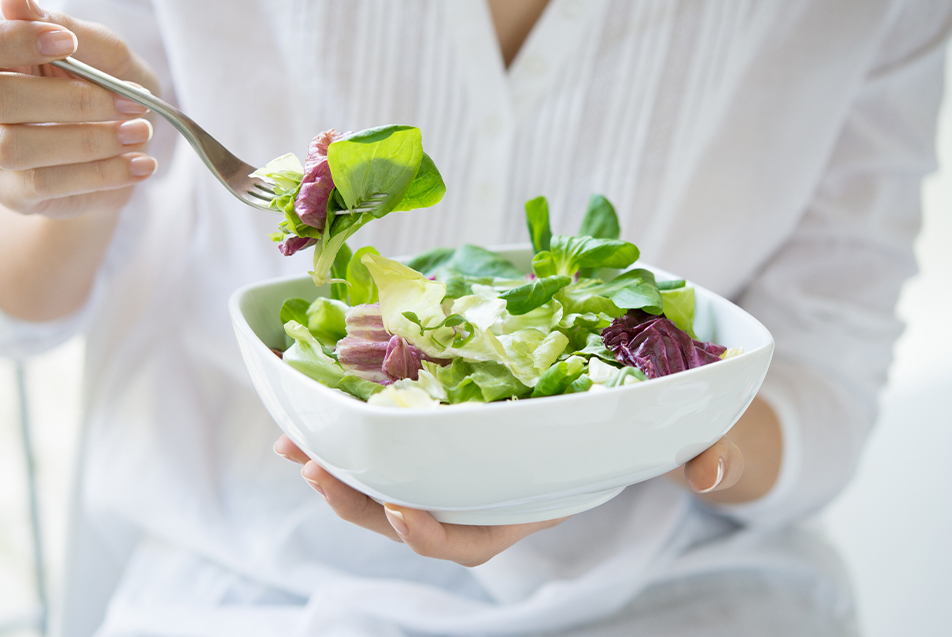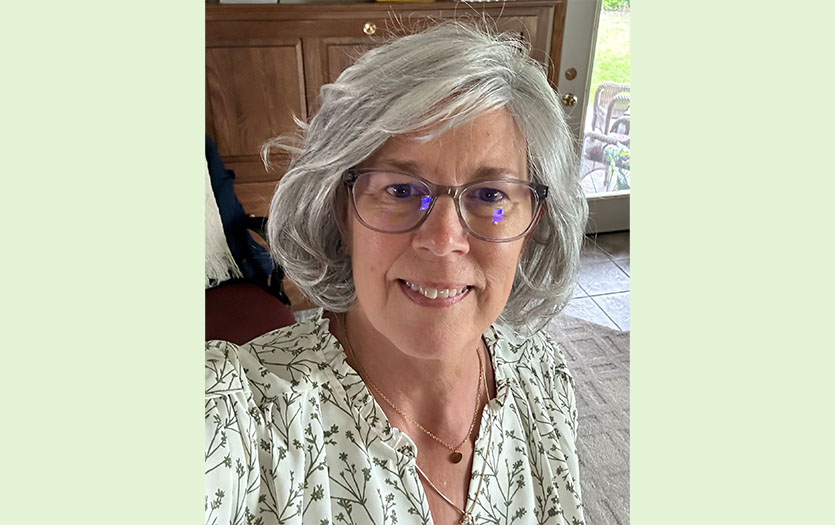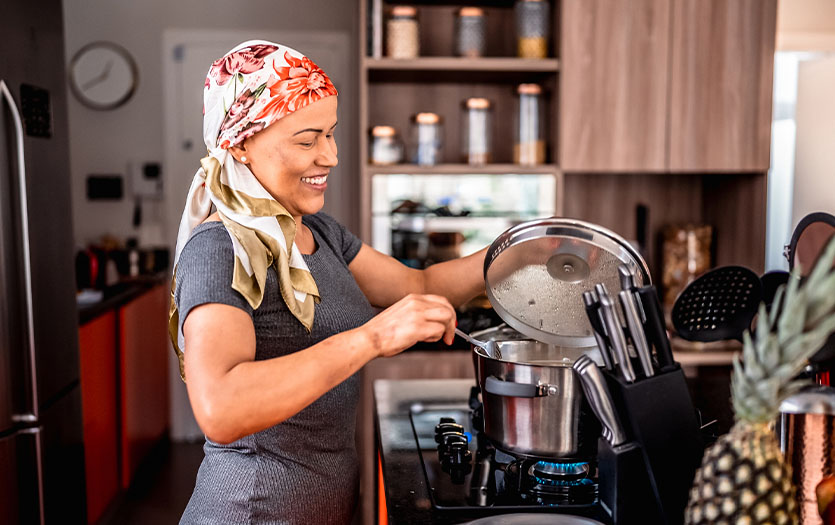
It’s no secret that consuming a healthy diet and maintaining a healthy weight is essential in reducing your cancer risk. But with an abundance of information at our fingertips, it can be challenging to know which recommendations to follow. For help deciphering fact from fiction, we asked Ali Thomas, RDN, Nutrition and Metabolism Clinic, Parkview Cancer Institute, to help answer some questions regarding diet, nutrition and how they correlate to a person’s risk of developing certain types of cancer.
Is cancer linked to the way we eat?
The World Health Organization estimates about 40% of cancers can be prevented based on how we eat and various lifestyle factors. For example, some foods we eat, like red or processed meats, can increase our risk. Additionally, being overweight can also increase a person’s risk for roughly 12 different types of cancers. Most of them are GI-related like colorectal cancers, but it can also include esophageal, head and neck, mouth and some hormone-related cancers such as breast or endometrial because the more fat tissue a person has, the more hormones (estrogen) they may produce, increasing their probability of developing cancer.
Moreover, when someone is overweight, they carry more inflammation in their body. This inflammation is a stressful environment where cancer is more favored to grow. Processed foods and foods high in calories but lacking nutrients may cause more inflammation, placing inflammatory stressors on the body and increasing a person’s weight.
Unfortunately, it’s not just the food itself, but also the additives used and how it’s processed. Smoking may add flavor to your deli meat, bacon, sausage or hot dogs, but it also turns them into carcinogens. And, while some varieties may be a bit leaner, they are still processed, which affects the way our body breaks them down, causing more inflammation and posing a greater risk for developing cancer. That’s why adopting a healthy lifestyle and diet is so important.
Can a specific type of diet help prevent cancer?
Honestly, there’s no one particular diet I recommend. Instead, it’s more of a lifestyle consideration. Ideally, though, you want to concentrate on what we call a plant-based or plant-focused diet, which means consuming and incorporating more plant foods into your routine. Typically, this will include fruits, vegetables, whole grains, beans, nuts and seeds. These all have a compound known as phytochemicals or phytonutrients only found in plant foods. These are some of the most important foods you can integrate into your diet if you’re not doing so already. Phytonutrients are great for reducing inflammation, keeping your immune system strong, and repairing damaged cells in your body. So, be sure to eat as many colors as you can in a day from plant foods in their whole form. Fresh or frozen is best, but canned is also a great option when needed. Just be sure to watch your sodium intake.
Is there a link between sugar and cancer?
This is a very common question and often misunderstood. The fact is that our cells, including cancer cells, use sugar in the form of glucose for fuel or energy. We get glucose from the food we eat, like healthy items such as fruits and vegetables, and from unhealthy options such as baked goods or sugary drinks. And while the cancer cells don’t know the difference between a cupcake or an apple, we must give our body the proper nutrients it needs to stay strong and keep our immune system healthy. Remember, we want to get most of our diet from those plant foods and indulge in those sweet treats in moderation. I find it best to try to adhere to an 80/20 mindset. 80% of the time, make sure you are getting those healthful foods, then for the other 20%, enjoy those indulgences because we’re human and should enjoy what we’re eating.
Should people steer clear of artificial sweeteners?
Not necessarily. Artificial sweeteners are not a bad alternative. There was speculation of a possible link to cancer in the past, but no research supports that statement. There’s also nothing wrong with regular sugar. It depends on you and your overall health. For instance, someone with diabetes may need to utilize artificial sweeteners from time to time to monitor their sugar intake. But some artificial sweeteners can cause GI intolerances, bloating, discomfort and gas depending on the quantity. No matter what you choose, it’s important to remember that sugar is still sugar regardless of the form it comes in, and moderation is still key when consuming it.
Does alcohol cause cancer?
Alcohol is something our body doesn’t like or need. You can drink alcohol in moderation, but it is a carcinogen and toxin. And, while red wine does have some great benefits for heart health, there’s still at risk for about seven different cancers, including GI-related, liver, esophageal, head, neck and hormone-related cancers with breast in particular. Alcohol may increase the circulation of estrogen in the body, putting people more at risk for any one of those cancers. So, we recommend sticking to that one standard drink for women and two for men. Feel free to enjoy it occasionally, but it’s best to opt for a more healthy option that your body desires, like water to stay hydrated.
Should people avoid soy and foods containing soy?
Soy is safe to consume, whether someone has a history of breast cancer or they’re trying to reduce their risk overall. In moderation, soy has shown to be beneficial. It does have that phytonutrient known as isoflavones, which can help reduce the risk of recurrence for breast cancer. Generally, it is safe and beneficial to consume about two servings of soy per day. That’s about half a cup of tofu, tempeh, edamame or about one cup of soy milk twice daily. However, if you do not like soy, you do not have to add it to your diet.
Is there a benefit to purchasing organic vs. non-organic foods?
By purchasing organic food, what you’re doing is reducing the pesticides or pesticide residue on your fruits, vegetables and in your diet. However, there is no research to support, as far as cancer risk goes, going organic versus non-organic. At this point, it’s typically up to you as a preference. If you want to go organic, please do so, but they can be a bit more costly. Remember, any fruits, vegetables and plant-based whole foods are going to provide you with the nutrients you need, whether they are organic or not.
Are there any benefits to drinking tea?
Tea is plant food, so yes! Tea and coffee are excellent plant sources of phytochemicals that we may not get in our everyday routine. Does that mean you have to incorporate tea into your diet? No. If you are eating plenty of fruits, vegetables, whole grains, beans, nuts and seeds, you are likely getting plenty of phytochemicals. With that said, some teas may have a health halo or claim that’s just too good to be true. For example, I would be cautious with any tea claiming to cleanse or boost immunity. Sometimes manufacturers add components that make the tea too concentrated for your body. Instead, it’s better to stick with green tea, herbal teas or dried teas you can bag yourself.
How does nutrition affect my health if I’m currently going through cancer treatment?
Nutrition plays a vital role not only in prevention but also during treatments. It’s a critical component in healing, repairing and recovery. Cancer treatments can take a toll on the body, which is why it’s important to adhere to a healthy lifestyle and diet as much as possible. This will ensure you’re getting the right calories and nutrients your body needs to heal and for energy. However, there may be some side effects from treatment that could place a nutritional impact on your well-being, making it challenging to stick with all these recommendations. That’s where meeting with an RD or RDN can benefit patients and help them individualize a diet based on their specific treatment plan and needs.



